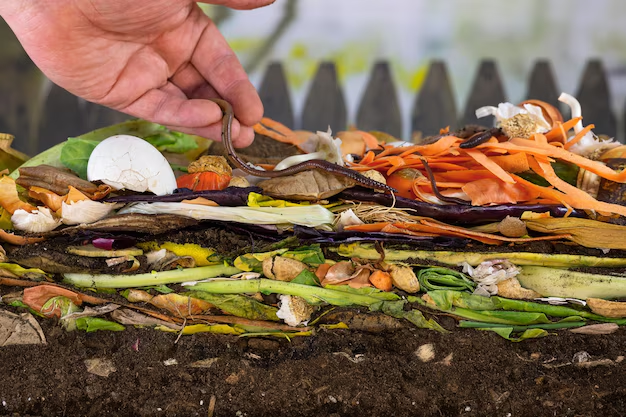Mastering Apartment Composting: A Simple Guide for Urban Dwellers
Living in a compact urban apartment doesn’t mean you can't embrace eco-friendly habits like composting. Not only is it possible, but it’s also easier than you might think. With urban spaces constantly shrinking, mastering the art of home composting can benefit both you and the planet. Here’s how you can make composting a reality right in your apartment.
Understand Your Composting Options
In an apartment setting, traditional compost piles won’t fit your lifestyle. Instead, you can choose between methods like vermicomposting or using a compost bin.
- Vermicomposting: This method uses worms to convert kitchen scraps into nutrient-rich compost. Although some might cringe at the idea of keeping worms indoors, it’s an efficient, odor-free process—an ideal solution for small spaces.
- Compost Bins: Compact and contained, these bins fit easily under a kitchen sink or on a balcony. They come equipped with a lid to trap odors and are designed to accommodate the small quantities of waste typical in apartments.
Starting Your Composting Journey
Gather Your Materials
To start composting, here’s what you’ll need:
- A compost bin or container: Choose one that fits your space and matches your composting method.
- Bedding material for vermicomposting: Shredded newspaper, cardboard, or coco coir.
- Kitchen scraps: Fruit and vegetable peels, coffee grounds, and eggshells work best.
- Red worms for vermicomposting or starter mix for bin composting.
Initiate the Process
- Vermicomposting: Add bedding to the bottom of the container, moisten it, and introduce the worms. Gradually start adding food scraps, ensuring a balanced mix to avoid overfeeding your worms.
- Composting Bins: Mix dry and moist inputs, like those from your kitchen and shredded paper, to create the perfect composting environment. Turn the mixture periodically to accelerate decomposition.
Maintain Your Setup
- Avoid odors: Maintain a balance of greens (kitchen scraps) and browns (paper, dry leaves). If vinegar smells arise, add more browns.
- Place wisely: Keep your bin in a convenient but out-of-the-way spot. Regularly check moisture levels.
Benefits Beyond Green Living
Composting at home isn’t just about reducing waste—it’s about nurturing a lifestyle that fosters sustainability. In creating your compost, you'll cultivate a mindful relationship with your waste and contribute to a greener footprint.
Exploring Financial Avenues
Engaging in environmentally conscious practices like composting can open doors to broader opportunities. Here’s how:
- Government Aid Programs: Many cities now offer subsidies for purchasing composting equipment. Check your local government's environmental initiatives.
- Educational Grants: Interested in formal environmental studies? Look into grants and scholarships for courses in sustainability.
- Green Lifestyle Incentives: Some areas provide tax incentives for households taking active steps in waste reduction and eco-friendly practices.
By transforming waste into resource-driven insights, you can lead by example, fostering not only personal growth but also community well-being.
Financial and Educational Opportunities to Consider:
- 💸 Local Environmental Rebates: Check if your city provides rebates for purchasing composting or recycling equipment.
- 🎓 Sustainability Education Grants: Investigate scholarships dedicated to environmental science or sustainable development.
- 💳 Green Credit Card Options: Consider credit cards that offer rewards or points for green purchases or donations to environmental causes.
- 📚 Online Courses in Sustainability: Free or discounted courses might be available through platforms focusing on green business strategies or personal eco-friendly practices.

